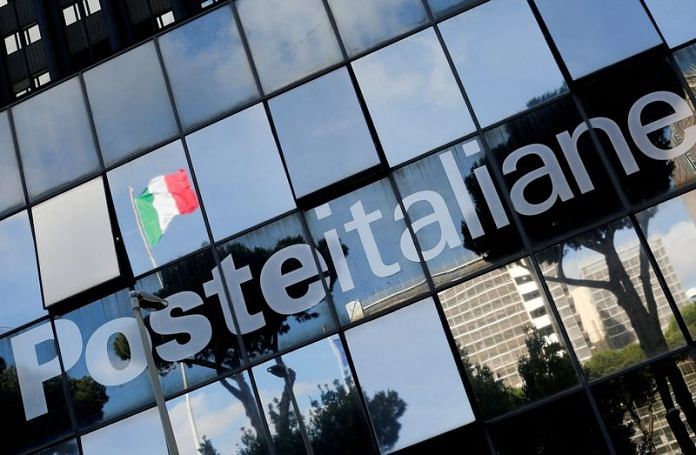By Giuseppe Fonte and Valentina Za
ROME (Reuters) – Italy’s Treasury has picked accounting firm KPMG to put a price tag on PagoPA, a company handling digital payments to the public administration, as it prepares to sell the business to the state mint and postal service Poste Italiane, people close to the matter said.
The prospect of PagoPA changing hands, though it would remain under state-controlled entities, has spread alarm in Italy’s crowded banking sector, where many small lenders are struggling to keep up with rapid changes in the payments sector.
Banks look with concern at the increasing presence of non-bank digital payment providers such as Apple, Google-owner Alphabet or PayPal, and fear that Poste could use PagoPA to strengthen its position in the digital payments market.
The appointment of KPMG is however a key step in a project that will see Poste becoming a minority shareholder in PagoPA, the sources said, asking not to be named due to the sensitivity of the matter.
All involved parties declined to comment or were not available for comment.
Poste is a financial conglomerate that has expanded beyond its core business into payments, mobile phone services and energy supply, as well as insurance and investment products.
PagoPA, which works with banks allowing lenders to give their clients access to its services through online banking, this year handled payments towards Italy’s public administration worth 46.66 billion euros ($50 billion).
The payment firm is also set to play a leading role in Italian government efforts to set up IT Wallet, a digital wallet where Italians will be able to store both official documents, including proof of their digital identity to access public services online, but also payments.
To address competition concerns, the government-backed project prevents Poste from signing off on governance agreements that would allow it to exercise a dominant influence over PagoPa, in which the state mint will be the majority shareholder.
($1 = 0.9290 euros)
(Editing by David Holmes)
Disclaimer: This report is auto generated from the Reuters news service. ThePrint holds no responsibilty for its content.



